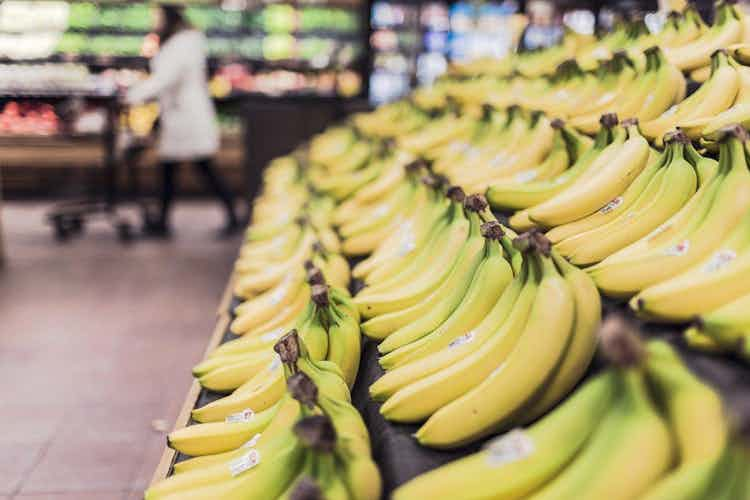When you enter a supermarket these days, you are undoubtedly inundated with offers. Those offers seem to provide the chance to save money - so much so that we can often be tempted to purchase some products in bulk. We do so to save money further down the line so that we do not have to buy that product when it is back at full price.
But is buying groceries in bulk truly a money-saving tactic? What do we really gain from this supposed ‘life hack’?
What does it mean to buy in bulk?
Before delving into the economic pros and cons of buying in bulk, what does buying groceries in large quantities actually mean? Because buying in bulk can be done in many ways and may mean several different things to different people.
Depending on the individual, buying in bulk may mean buying ten of something instead of just one. Or, it could be that you bulk buy due to an offer at your local supermarket. Supermarkets are awash with Buy One Get One Free promotions, money off deals, and 3 for 2 offers. Using these means that you are inevitably buying in bulk as you will likely be buying more than you need for your weekly grocery needs.
Additionally, though, you could be a big Cash and Carry fan or like to go to wholesalers who sell in large quantities so that your cost per unit reduces the more you buy. You can do that too in supermarkets, by purchasing bigger bags of a product. In these instances, cost per unit also goes down.
Why can buying groceries in bulk save you money?
Buying in bulk at a supermarket, at the bottom line, will often cause you to spend more money than you had intended on a weekly shop. The reason being is that when you make use of a 3 for 2 deal or buy several products in a Buy One Get One Free promotion, your total bill is still going to be higher than if you had bought only one of each item in the first place. That is particularly true when purchasing bigger bags or packs of groceries than an individual item. However, it can save you money. Here’s why:
Cost per unit
When it comes to buying groceries for a family, buying in bulk can be an excellent way to keep costs down as the cost per unit does decrease (and can do significantly) if bought in bulk. The way it can really save you money is if you purchase items in bulk that you will use over a longer period of time anyway. As a result, over a year, you may be spending less than you would have done without your bulk buy purchases.
Stocking up
Non-perishable goods, in particular, can save you money over the longer term as you will eventually use them before their use-by date.
Such a tactic can be highly effective if you have a big freezer. Chest freezers can hold an excessive amount of food. So if you see an item that does go off quickly yet can be frozen and is on promotion at a supermarket, buying several to take home to freeze can be highly beneficial. Many vegetables can be frozen and used several weeks or months later.
Time
In our increasingly time-pressured world, buying food in bulk can save you money regarding the time you would have spent going to a supermarket more frequently. Going to the supermarket more often is time that many of us could do with either spending longer at work or with our families. If you are paid per hour, having more time to work can actually end up earning you more money. But better salary aside, having more time to spend with our families or relaxing at home may not have monetary worth, but it still has value. Having the capacity to have time out without doing any more life admin than needed - like going to the grocery store several times a week - is a great way to increase your ability to decompress and have a well-earned breather.
Petrol money
For those of us who did not make the switch to online shopping during the pandemic, going to the supermarket more frequently does cost you money in terms of petrol. Even nipping into a supermarket a couple of times a week “to buy a few bits” means you will inevitably use more petrol than you would have done otherwise. Buying in bulk could prevent you from slipping into this bad habit even though you have a fridge full of food at home and a well stocked larder thanks to efficient bulk buying practices.
When does bulk buying groceries not save you money?
Buying more than you need
A very common pitfall for people, who are buying in bulk in an effort to save money, is that they end up buying more than they need. Take, for example, if you see an offer on BBQ style meat. It is really common for supermarkets to offer a 3 for 2 deal (or similar) on pre-marinated kebabs or premade burgers during the hotter summer months. Yet, this often causes people to stock up to levels that are far higher than they need.
The temptation to buy more than is needed is commonplace as food appears cheap when bought in bulk. However, when you buy more than you need, you have automatically spent more money than necessary.
Food going off
Perhaps one of the most significant issues with buying groceries in bulk is that food can go off very quickly. Plus, over-purchasing is often the cause of the vast amount of food wastage we see both in this country and worldwide. While the freezer can be a fantastic tool to store food that is about to turn, it does not always prevent food from going off in its entirety. Food wastage is a problem for the environment, but it drives food bills up far more than we realise. On average, UK households waste 4.5m tonnes of food each year - which equates to about £700 a year for the average family with children. That’s not a sum to be sniffed at, and could be used to bolster ISAs or other pension pots.
Non-financial disadvantages of buying groceries in bulk
Panic buying
Many of us saw the disadvantages of buying groceries in bulk during the initial stages of the pandemic. As many of us bought in large quantities, in anticipation of more time in our houses, shortages of certain products were widespread. Toilet paper, in particular, was a product where supply could not keep up with demand - but also baked beans, tinned tomatoes and other store cupboard essentials. The practice of panic buying and hoarding meant that items totally sold out in supermarkets - leaving some people who needed certain goods without.
Promotion of unhealthy eating habits
Promotions on sugary food and sweet treats are exceptionally commonplace in supermarkets. These promotions encourage us into buying items that we would not always necessarily put in our shopping baskets. That can have a negative effect on our eating habits. For instance, say you are at the checkout, and you see a deal for your favourite chocolate bar where you can buy three of them for £1. In any other circumstance, would you really buy three chocolate bars?
At full price, you would at the very most buy just one. Yet, clever marketers have persuaded you to bulk buy it. While you may well think you are saving money, the likelihood is that you have spent more money by buying more than you would have anyway - plus, you are also going to ingest more sugar and fat than you would have done too. The problem with eating more sugar and fat is that they promote cravings - causing you to seek out yet more sweet treats in the future.
Should I buy groceries in bulk?
Knowing whether it is a good idea for you to buy food in larger quantities depends on a few personal variables. Firstly, you need to ask yourself whether you will use all of what you are buying before it goes off. Then, secondly, you need to honestly answer whether you would have purchased those groceries without the encouragement of saving money. So many of us are enticed into buying groceries from supermarkets that are on offer that we would not have purchased without that offer in place. That’s clever marketing from companies that know that people love a bargain. But it is only ever a bargain if you were going to buy it anyway.
That being said, buying groceries in bulk can be an effective way to save money - which you can then put into a savings account to grow. But there are other ways to save money when grocery shopping other than buying products on offer or in larger quantities. You could buy a cheaper brand or a supermarket home brand, for example. These often offer far more significant discounts over the course of a year than buying in bulk can provide. Or, you could try an entirely different supermarket too. Discount supermarkets like Aldi and Lidl are far more cost-effective than buying your weekly shop from Waitrose and Marks and Spencer.
Finally, another highly effective way of saving money on groceries and doing your bit for the environment is to buy seasonally. Buying food in season means farmers sell their products at better prices as they have a more significant amount of crops to offload. And, what’s great about buying produce in season is that it tastes better. Plus, it has been seen to be better for you too as it contains more nutrients and minerals than food that has been force grown.






